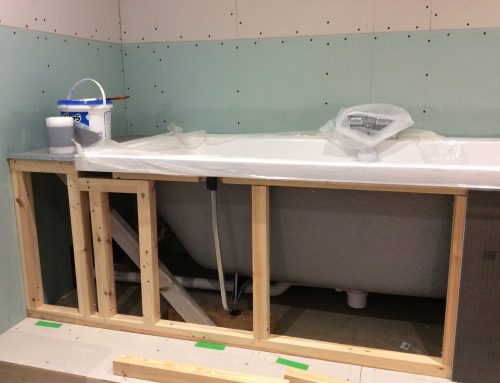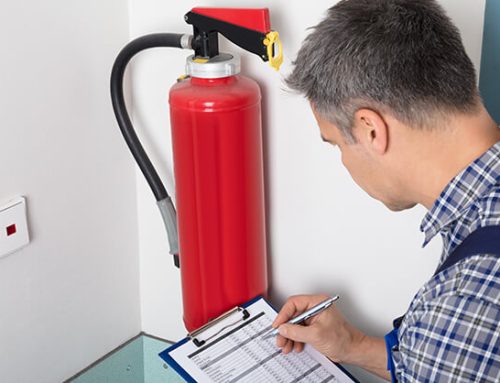
The pros and cons of regular maintenance in your building
August 01, 2021
Proactive vs Reactive the pros and cons of regular maintenance in your building. You’ve opened your building again and with Covid processes ready to go, you open your doors, or at least you try to, but 12 months of weather has left the doors a bit stiff and catching on the carpet. If this is a typical problem for you then read on. There are plenty of arguments for paying only for what you need in terms of building maintenance but who is telling you what is needed? You? The director? The finance officer? The Office Admin Support Officer? Mmmmm! Who’s competent enough to know?
So here’s the rub. If you pay for a regular person to come around weekly and work through one of your lists of stuff to do, what do you do first and how much can you get done? Here is why it’s wise to hire a competent multi-trade professional.
Multi-trade – By definition, it means the multi-trade person can check the fire extinguisher pressures, and the fire alarm, fix the loos seats, change locks, change taps and sinks, adjust doors and rehang them, unblock a sink, put up a curtain rail, install a smoke detector, test your emergency lights, clear your gutters and service your window latches. You may not need most of that done all at once but having a ‘one-stop shop’ for this kind of issue is easier on the mind and costs less to put right.
Competency – how have you become the expert on door locks and toilets etc? You haven’t. Let the competent professionals do it. The work will be guaranteed if it’s new or replacement parts. Some contractors provide workmanship warranties as well. You can’t guarantee any of your work.
Insurance – You are not insured to carry out these works. If the lock that you fitted fails and a burglary occurs, the insurance company will want to know who fitted it. Hope it wasn’t you. Secondly and most importantly in the area of insurance, you are unlikely to be insured to carry out such repairs. Most public liability insurance stipulates a ‘competent person’. By competent we mean someone who has carried out those works over and over and over again, many times.
Proactive – if you pay a competent contractor to attend each week not only do you get a whole heap of work ‘knocked off’ your list, but two key things also benefit you.
- The competent contractor helps prioritize the works. They know what should be done first.
- Each week they will see things that need doing that you (as the non-competent person) can’t see. They are objective rather than subjective. This means you are proactively getting ahead of the problems.
Rates – The average callout charge for a one-off issue is anywhere from £45 to £60 per hour for the first hour and then it reduces the longer they stay. That’s potentially £360 per day. If you buy a day from a multi-trade professional it should cost at least a £100 less.
The cons
Optimization – You are likely to have to make a commitment to so many days per month and sometimes you may not have enough that needs doing. Covenant suggests that anywhere from 1 to two days per month is recommended to keep on top of issues. It’s unlikely but yes you may be paying once or twice for more than you need from time to time. But think about this. Better to be checked and compliant than to have a claim against you for an accident due to poor maintenance. It’s still cheaper than a paid employee. No sick leave or annual leave to cover. No performance to manage. Risk is transferred to a competent contractor. No training investment is required. No tools are required. No employment costs.
Contracted services – Legally, once you have engaged services from a contractor and paid invoices you are in contract with them, whether on paper or not. Be wise, if you think you may not need the contractor that month, defer to the next. The terms of the verbal contract can be varied at any time. Its flexibility you need.
Not everything – Sometimes a multi-trade contractor can’t do all of the works. For example, any electrical or gas works must be completed by a NICEIC-approved contractor and a gas-safe engineer respectively. So yes specialized and qualified is different from a competent contractor. Know the difference.
Personnel – you may not get the same person each time the company visits. It takes time to trust. Make sure the company you hire is DBS checked for all its staff and where children or vulnerable people are regularly in the vicinity of the contracted company employees you may have to insist on ‘enhanced’ clearance proof. And there is a downside to someone wasting time wandering around a building they don’t know the layout of. Try to ask for the same person each week. It’s more effective and efficient.
Ultimately you need your church and its associated buildings to function. To function well and to perform sufficiently to grow your mission activities and build the life of the church. Being proactive may occasionally mean excess capacity, but more often than not, you will need regular maintenance on a monthly basis just to keep the building functioning and performing.





